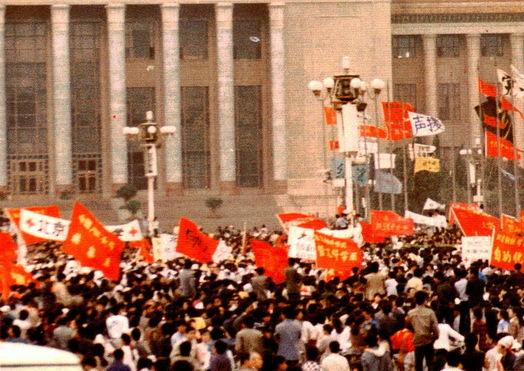
The Communist Party of China that has been ruling the country with an iron fist since 1949 faced growing popular demand from different quarters of the society for change starting in early 1980s. The absolute control of the Communist Party over every facet of life, degeneration, and political corruption at a time when Cold War product dictatorships around the world were falling one after another had encouraged popular demand for political reform. The public was demanding more liberal policies in agriculture, industry, science, defense, and technology, ending pressure on ethnic groups, granting wider autonomy to autonomous regions, recognizing religious freedoms, and realization of constitutional and economic reforms among others. However, the radical group inside the party opposed reform demands. Economic liberalization and limited freedoms did not meet demands of university students, workers and intellectuals asking for wider reforms. Thus began riots against the Communist Party regime in major cities and East Turkistan, Tibet and Inner Mongolia where ethnic groups predominantly live.
In April 1989, over 100,000 people from various walks of life gathered at Tiananmen Square of Beijing but Chinese authorities sent tanks and army units to end protests that had been going on for days. The heart of the protest led by university students, workers and intellectuals was Beijing’s Tiananmen Square. However, there were also mass protests in Shanghai, Urumqi, Wuhan Xi, Changsha and many other cities. During the suppression of the Tiananmen protests that went on for two months and triggered protests elsewhere on the 4 June, about 2000-3000 protesters were killed, official Chinese sources report. Independent sources put the death toll between 2000 and 3000. Live bullets and tanks were employed to disperse protesters, wounding between 7000 and 10000. Following suppression of the protest by using excessive force, the Chinese government stepped up pressure on the remaining elements of the opposition with mass arrests, and banned foreign media to enter Chinese towns. Members of the Communist Party suspected of collaboration with regime opponents were purged and a number of members were put under house arrest.